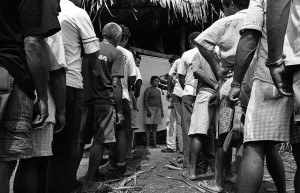Slaves in the Amazon – Part 2
Wednesday, March 21st, 2012 11:06:09 by Fouad Ashraf
This article is a continuation of ‘Slaves in the Amazon – Part 1’.
It seems that these threats do not frighten many entrepreneurs, who continue to resort to lies to recruit workers from other regions. "In recent years Brazil has improved somewhat, but efforts are being made are still insufficient," says Sakamoto.
Among the major outstanding bills are the lack of progress in the prevention of the phenomenon, the paralysis of land reform and widespread impunity when the perpetrators are identified and prosecuted. "In recent years there have been only 40 convictions
and few have been implemented. Makers often have influence and money to pay the best lawyers," abounds.
In the State of Pará are met, according to all sources, the conditions for slave labour to flourish. Southeast of that state is, according to the Labour court in Maraba, Jonathan dos Santos Andrade, "a frontier of agricultural expansion and a major mineral
provinces of the planet." Besides, he says, there lives a selective absence of the state. "This investment in economic output but not in a proper social structure," he says.
Three out of four victims of slave labour are black or mulatto, and mostly illiterate, according to a study investigator Marcelo Paixao. The thousands of workers rescued in recent years tell a very similar experience: they tend to receive a job offer from
their homes, usually in other Brazilian states, in order to isolate them from their environment and family friendly.
Often they are not informed of the exact location where they will work, but they are moved, crammed in precarious routes vehicles to prevent easy identification of the route. Once at the destination, employees pay for everything: transportation, food, clothing
and work material. In the estates, employers have establishments where workers buy what they need at prices sometimes abusive.
The employee ends up spending his meagre wage on subsistence items until it begins to borrow from your boss. As debt increases, the individual is more cornered at the mercy of the operator.
The houses are often precarious shacks often in the jungle, where workers are exposed to rain, insects and snakes. Often there is no drinking water.
Tags: Amazon, brazil, Govt Niger, South AmericaShort URL: https://www.newspakistan.pk/?p=16709

















